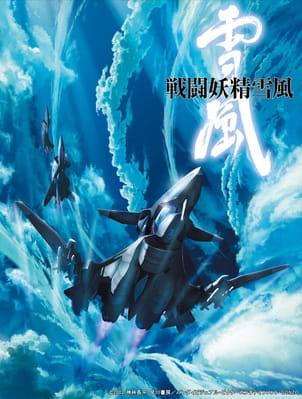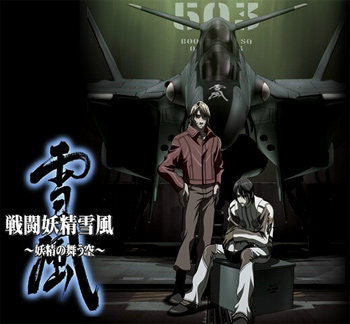Title: Mark of the Demon
Author: Diana Rowland
Format: book
Mark of the Demon opens up with our main heroine, Kara Gillian, performing her main talent: summoning demons. Right away we see how capable she is at the task, and get a feel for what sort of atmosphere the book is. For those thinking this is more on the Wiccan side, you would be off. If you're thinking religious, that's wrong too. But that's not to say the description of the demons therein aren't too far from classic imagery: leather wings, horns, molten colored skin, et cetera.
But that's not all she can do. Kara is also a detective, and a newbie at that. She hasn't been in the business of investigating violent crimes for long, and it shows in the way she interacts with her coworkers, and vice versa.
Kara doesn't have an especially friendly relationship with the men at the station. She doesn't think too highly of their unanimous port bellies and attitudes, and they all think she doesn't belong. Very few people take her seriously, and don't think she slept her way through the ranks to get where she is now.
But Kara shows attitude of her own that says she can be just like them. She's not wishy-washy, and she has the skills to pull off her job.
The underlying theme that Kara isn't a complete failure pretty much lasts throughout the whole book. It is what drives her into action in the first place (part of the reason, anyway), and what keeps her going when others challenge her knowledge and authority. It's also what leads her to the final battle scene when the mystery is solved and the pieces all come together.
Speaking of pieces, the methodology Kara uses to solve her case is rather unconventional. This isn't necessarily a compliment. It shows that Kara is indeed a novice in her field of work, because the way she collects her evidence is more by luck and happenstance than actual critical thinking. Despite working the field as a policewoman before she got transferred, the only skill she seems to have gained during those times is a social skill to talk with the street thugs and social questionables for help.
Her way of talking isn't the most polite either. Be prepared for frequent drops of the F-bomb throughout the book, not only by Kara but other characters as well. It seems that there is no barrier or limit to how many times cuss words can be put on a single page during a single conversation. The more shocking an event, the more gets dropped.
This startled me. I didn't expect to be faced with that much foul language, least of all by a female character. Not to say that women don't cuss. I'm well aware they do, but in this case it seemed to be used in excess. I don't know if the author was trying to make Kara seem more rough around the edges by having this added quality to her personality, but if that's the case, I think the execution fell short of the goal.
Something else that also fell short, in my opinion, is Ryan. Ryan's character started out strongly, playing the role of a man who's hard to understand and worth all amounts of wariness when discussing delicate topics like demon summoning and anything else not considered "normal." He's the handsome, dangerous type that is supposed to rival Rhyzkahl. But when he finally gets close to Kara and Kara opens up to his advances, the personality that shows through as they interact is sorely disappointing.
It's as if Ryan got swapped with a prepubescent teen. I can understand if the previous image he wore is supposed to be a facade of sorts, but the truth that lies underneath that mask is not what I expected it to be. I don't feel attracted to Ryan's boyish behaviors, or the way Kara responds to them in turn.
Rather than seeming like a pair of adults, somewhere near their thirties, the pair of them seem like a couple of high school kids messing around. Like if
Harry Potter suddenly got dropped into the mix. Except Kara is no Hermione, and Ryan is no Harry. Or vice versa. Ryan's intelligence about the situation is lacking, and his assistance even more so. As he starts to serve as a sidekick to the whole investigation, it seems he becomes more of an accessory than asset. I don't think he even serves as a strong enough counterpart as a male to her female.
Likewise, Kara doesn't seem to collect her thoughts in a concise and productive manner that makes me, as a reader, believe she deserves to play the role that she does. I'm not sure what Rhyzkahl sees in her that makes her so special, when she comes off as too mediocre.
I find myself struggling to pinpoint what makes Kara unique. Generally, you/I should be able to name at least one thing that makes a heroine worthy of her title. For Kara... is it her luck? Maybe it's just coincidence. She doesn't seem to do much until the very end when everything comes together and all the wandering around finally pays off.
And, of course, all she has to do is something she should have done in the first place. It would have been easy if only she had done it, but we all know that would just make it
too easy. Still, she could have saved herself some hardship, and prevented some deaths if she had done it right the first time around.
(By the way, I think the wrong people died in this book. Maybe I'm just being spiteful, but some of the people who survived this major ordeal should have died instead of those who did.)
I'm not too sure if I'll be reading the next book in this series. I was kinda disappointed with how it turned out. It started out strongly, and had continued to interest me for a while, but up to a certain point I became irritated and confused by the way the characters were going about their business. I know there are some plot holes and character slips where certain people kinda get lost in the background and then suddenly found again. I would have liked a bit more consistency with the events, a bit more intellect from the main people involved in solving the mystery, and stronger connection with the characters as a reader.
The writing itself was okay. It wasn't garish, but it wasn't the smoothest I have ever read. Some dialogues were a little frustrating to get through since there were times when descriptions were lacking or there was too much being said. Sometimes people talked too much, said too much, when instead the information should have been inferred through thought and reader drawn conclusions. There are also times when I have trouble visualizing the scene in front of me, because the characters I'm imagining don't match what's being portrayed in front of me. Perhaps there is a lack of cohesiveness between the reader's imagination and the story being told.
This is my experience with it. It's not a bad book. Could it use a bit of polishing? Certainly. But I don't think this book is horrible. Maybe the sequel is a vast improvement on this first one of the series. I'll probably never know, because I don't plan on making any serious effort to read it. Not now anyway.
Overall: 3 out of 5


















